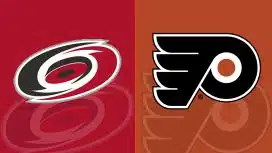By Kevin Durso, Sports Talk Philly editor
It’s been a week since the Flyers shook up the hockey world with the firing of GM Ron Hextall. In the week since, we’ve heard about Hextall’s style of managing, the pitfalls of it and the happenings of the organization during Hextall’s tenure. We’ve heard from Paul Holmgren and Dave Scott. We’ve heard from Hextall himself.
And through all the noise, we’ve also seen opinions vary on the move. There are cases for both sides.
This is the wild week that has been for the Flyers as an organization. There was the decision to fire Hextall, the aftermath of the move, the press conferences, the information surfacing as a result of such a move and the opinions of it being the right thing or wrong thing to do.
One week after the move, as the Flyers move closer to hiring a new GM, it’s time to put a wrap on the talk about Hextall: the good, the bad and the ugly.
There have been a lot of comparisons of Hextall’s demise coming from various sources. A number of people have compared his axing to Ed Wade’s with the Phillies over a decade ago. When the Phillies reached baseball’s peak in 2008, Pat Gillick was the GM that received the accolades. The core of the team, however, was assembled by Wade.
The same could become true for Hextall if the Flyers make a run to the Stanley Cup with any combination of the prospects and draft picks he assembled.
That was an area where Hextall truly shined. He cleaned up the salary cap. He drafted well. He built up a non-existent farm system and left the Flyers with money to spend when the time comes.
But when it came down to it, Hextall was more aggressive when it came to his plan and not when it came to the current team. The upper management and ownership wanted to see a change. Hextall wanted his way.
This is where the varying opinions come in. Philly.com’s Marcus Hayes sympathized with Hextall — noting similar fates to Sam Hinkie and Chip Kelly that were never quite understood, but somehow made the team better off in the future.
In the end, Hextall was a combination of the two infamous figures in Philadelphia sports. Hinkie had his process. Kelly wanted the power. Hextall was both.
As Anthony SanFilippo pointed out in his very telling and informative article on Crossing Broad, there really wasn’t anything Hextall didn’t want control over. From SanFilippo:
“It’s no secret by now that Hextall was a micromanager…but his level of micromanagement went far outside the job description of what a GM is tasked to do.”
Hextall did control the nutrition and diets of the players. He shut the locker room to alumni. He had issues with ownership and people like Dave Scott who he didn’t think knew or understood the inner workings of hockey.
But there was so much more.
What about Dave Hakstol? Why wasn’t Hakstol the one to go? Maybe that had to do with Hextall’s control over him. More from SanFilippo:
“He smothered Hakstol’s coaching efforts…Hextall dictated a lot of decisions…Hakstol and Hextall didn’t always see eye-to-eye on the way things needed to go with this team. A lot of times Hakstol was trying to coach in the vacuum that Hextall created, and was always the guy who had to fall on the sword for decisions that may or may not have been his own.
“This is why Holmgren has said he hopes whoever the new GM is will give Hakstol “a fair shake.” That’s because Hakstol hasn’t really had one yet.”
Then there is the players and the control Hextall had over them too.
SanFilippo notes several things: that when Sean Couturier injured his knee in a charity game over the summer, he forced all players to wear knee braces, even if they didn’t have knee problems. He controlled and changed the menus on the team plane and at team hotels. He fumed when players disobeyed that diet in any way. He essentially controlled the players’ lifestyle from top to bottom. Players have routines and like structure and discipline to remain in top shape, but nowhere near that level where it affects their lifestyle.
He also notes that Hextall had his circle of trust. He wouldn’t share everything with Holmgren. He wouldn’t share them with Scott. He wouldn’t share them even with Hakstol.
You know who was in that circle? Chris Pryor. It may seem like Pryor was a mercy killing just for being Hextall’s right-hand man, but when you understand his involvement in Hextall’s circle, you can understand why the team wanted to cut ties in the aftermath of Hextall’s firing.
The same goes for Gord Murphy. Firing Gord Murphy as an assistant coach had nothing to do with choosing one and making a change just to make it. Murphy, at Hextall’s request, was Hextall’s eyes and ears in the locker room, serving as a spy. Anything that went against Hextall’s plan or ideals was reported. And Murphy wasn’t the only one apparently.
Even then, Hextall was allowed to oversee the operations of the players and coaches because those are his decisions as the GM. He signs, drafts and trades players. He hires coaches. He can make decisions regarding that at any time. But he also wanted say in everything else around the organization from season-ticket holder benefits, to the broadcast, to the content released on the team.
It all becomes too much. Hextall wanted his hands on everything. He wanted doors closed so that certain elements of this management didn’t get out to the public. And the whole thing created a tension throughout the organization.
That’s ultimately where this move comes from. It wasn’t as performance based as everyone thinks. This was about one individual taking micromanagement to a new level.
The change has been made, and more have been made because of it. Whether you like it or don’t, agree or disagree, believe what you see and read about Hextall or don’t, you can at least better understand why the Flyers started here and not elsewhere. There may be more to come in terms of changes, but it sure seems like these changes will be made by the next guy hired to be GM, not by Paul Holmgren or Dave Scott or anybody else within the organization.
What all of this does is at least closes the book on Hextall. His legacy will always receive mixed reviews. He didn’t get the Flyers to the finish line. His intentions were good and he did a lot of good things with his process. But he also abused his power as the general manager, at least with management enough that a change was needed.
At the very least, the Flyers can move on. If this week was about Hextall, next week, or at least someday soon, will be about the next GM.







